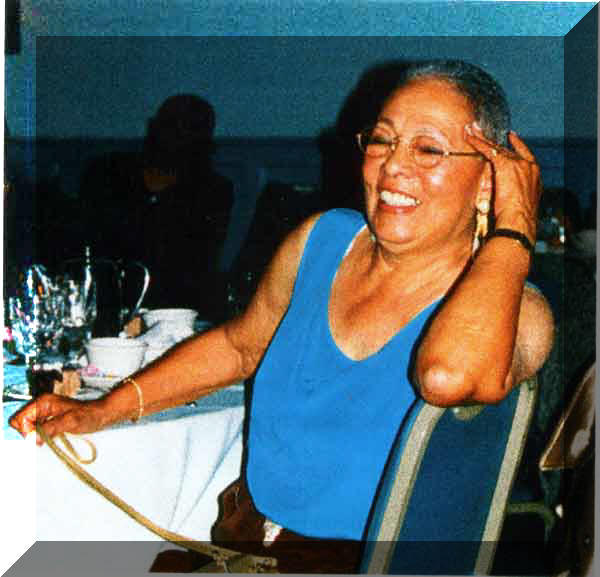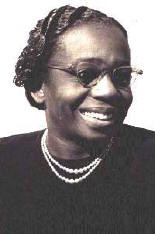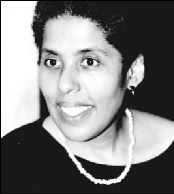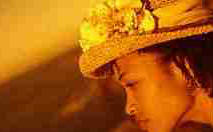









































 
|
Archives of Leaders & Legends
|

|
As the product of an interracial liaison
between a "feisty" white woman and a biracial man at the
beginning of the Depression, Ruth J. Waters was reared by a
strong black woman activist and educated in the segregated
educational system of Oklahoma. Even as a child Ruth never
considered that one could choose not to fight injustice
whenever and wherever encountered.
|
|

|
Ruth Ellis
"My life has been nothing special. I am a quiet person who
came from a very ordinary, middle-class Negro family. I was born
July 23, 1899 in Springfield, Illinois...After high school in
Springfield, a neighborhood man taught me how to set type and
run his presses...I had one real girlfriend. Her name was
Ceciline. We called her Babe.
|
|

|
Ingrid Rivera-Dessuit
Ingrid
Rivera-Dessuit says, "Asking me why I am a lesbian is like
asking me why I have brown eyes. Because that's my reality.
Because that's who I am." Ms. Rivera-Dessuit was featured in
the March issues of EBONY where she talked about coming out
of the closet, embracing her sexuality and educating others
about homosexuality.
|
|

|
Linda Villarosa
Confused and not sure about her sexual
orientation, she did not explore her feelings because she was
trying to fit into a white neighborhood and didn't want to do
anything others could think of as wrong.
Finally, in college, "I came
out because I couldn't stand not being myself any more."
|
|

|
Barbara Smith
"The near
nonexistence of Black lesbian literature which other Black
lesbians and I so deeply feel has everything to do with the
politics of our lives, the total suppression of identity that
all Black women, lesbians or not, must face. This literary
silence is again intensified by the unavailability of an
autonomous Black feminist movement through which we could fight
our oppression and also begin to name ourselves."
--Smith, 1998
|
|
|
|
|
|

|

Description:
Legendary radical Black lesbian feminist Barbara Smith talks
"The Truth That Never Hurts", as she discusses her book of the
same title. Making connections between women/queer liberation
and the African American Civil Rights movement of the 1950s
and 60s, Smith traces her development as an activist, and
celebrates the idealism, solidarity and passions of younger
activists who keep the struggle going. -- Gail Cooper
Show Number: 183
Producers: Harriet Hirshorn and Lucretia Knapp.
Click here to view RealVideo interview
Dyke TV Arts

Description:
Poetess Cheryl Clarke describes how a well-defined community
of lesbians gave her the best entrée into the world of lesbian
poetry. Along the way, she pays homage to her predecessors and
contemporaries, including Phyllis Wheatley, Gwendolyn Brooks
and Audre Lorde, and reads from her collection, Experimental
Love, published in 1993. -- Gail Cooper
Air Date:
Show Number: 252
Producer: Anat Salomon
Real Video Presentation
Click to view
|
|

|